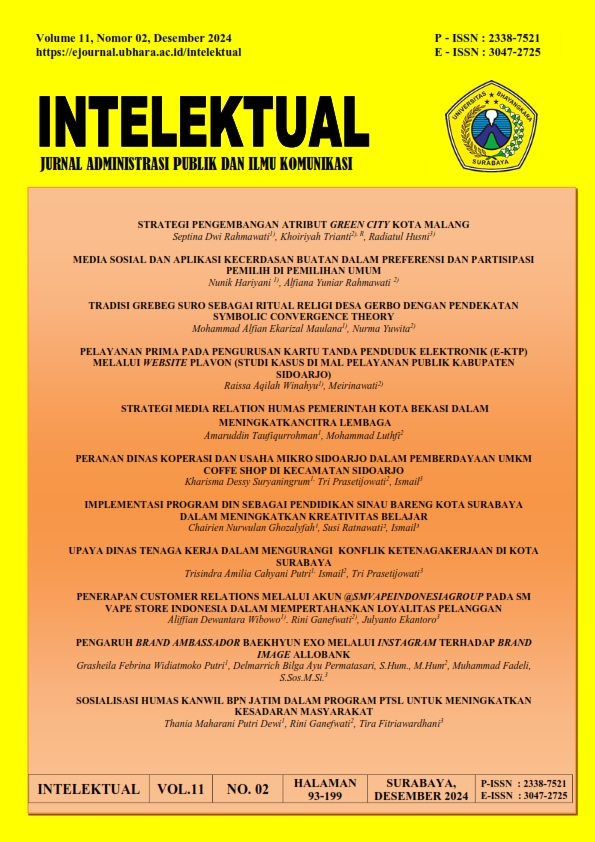Sosialisasi Humas Kanwil BPN Jatim Dalam Program PTSL Untuk Meningkatkan Kesadaran Masyarakat
Isi Artikel Utama
Abstrak
The low level of registration and certification of land plots is one of the problems that must be addressed by Public Relations of the BPN East Java Regional Office in the PTSL program. In various regions there is a need for land and the need to improve the level of national welfare, economic and social justice. Many people don't know that this program exists. Therefore, outreach activities that provide services to people who may not have access to these services must be socialized with a variety of different strategies to increase awareness of the surrounding community. The important role of public relations is to always carry out outreach and be responsible for influencing the perception of public awareness regarding land certificate registration. The method used is descriptive qualitative, namely a data collection method using in-depth interviews. Based on the results of this research, it can be concluded that the public relations outreach used by the East Java BPN Regional Office in the PTSL program is by using social media, websites, mass media and assisted by the local Regional Office (Kanwil) to socialize in the PTSL program which is used to increase public awareness. The obstacle experienced by the BPN East Java Regional Office public relations is that there are still many people who do not understand the importance of having a land certificate, the PPh and BPHTB tax budget that must be paid. The low effectiveness of socialization means that public relations requires human resources (HR) to maximize the socialization going according to plan
Rincian Artikel

Artikel ini berlisensi Creative Commons Attribution-NonCommercial 4.0 International License.
Authors who publish with Intelektual: Jurnal Administrasi Publik dan Ilmu Komunikasi agree to the following terms:
- The author retains copyright licensed under Creative Commons Attribution-NonCommercial 4.0 (CC BY-NC 4.0), which allows others to remix, adapt, and expand on the author's work non-commercially, and even if someone else's new work must also acknowledge the author and is non-commercial, they do not need to license their derivative works on the same terms.
- Authors are permitted and encouraged to post their work online (e.g., in institutional repositories or on their websites) before and during the submission process, as this can lead to productive exchange, as well as earlier and greater citation of the published work ( See Impact of Open Access). Authors can archive preprints and postprints or publisher/PDF versions.

